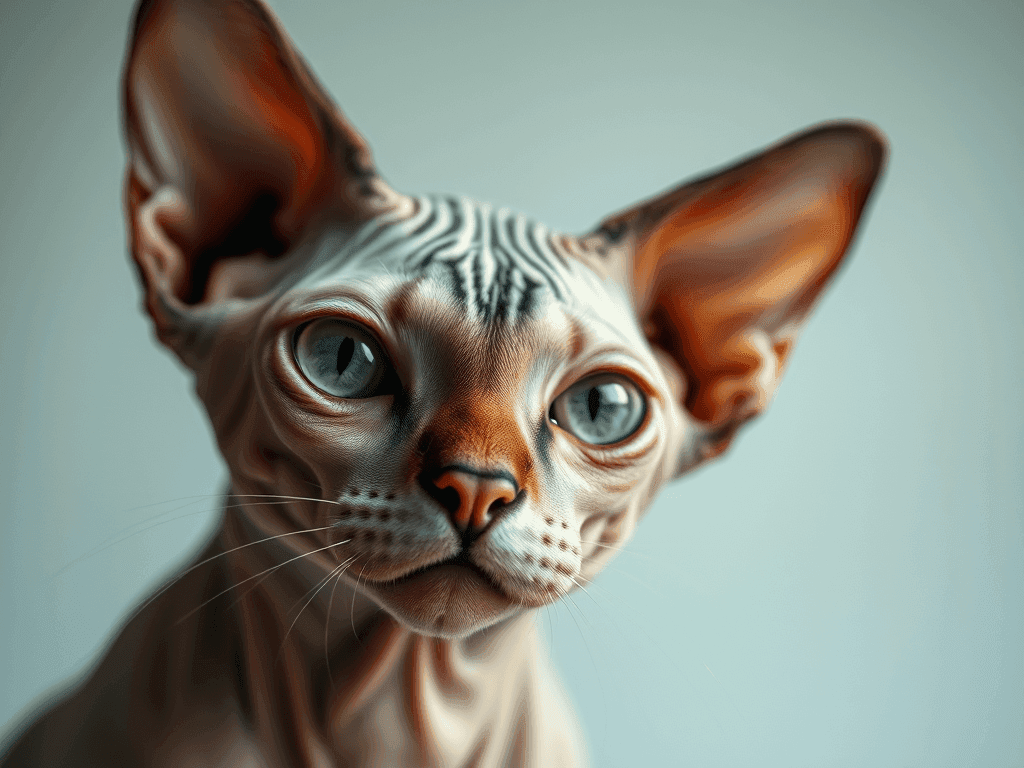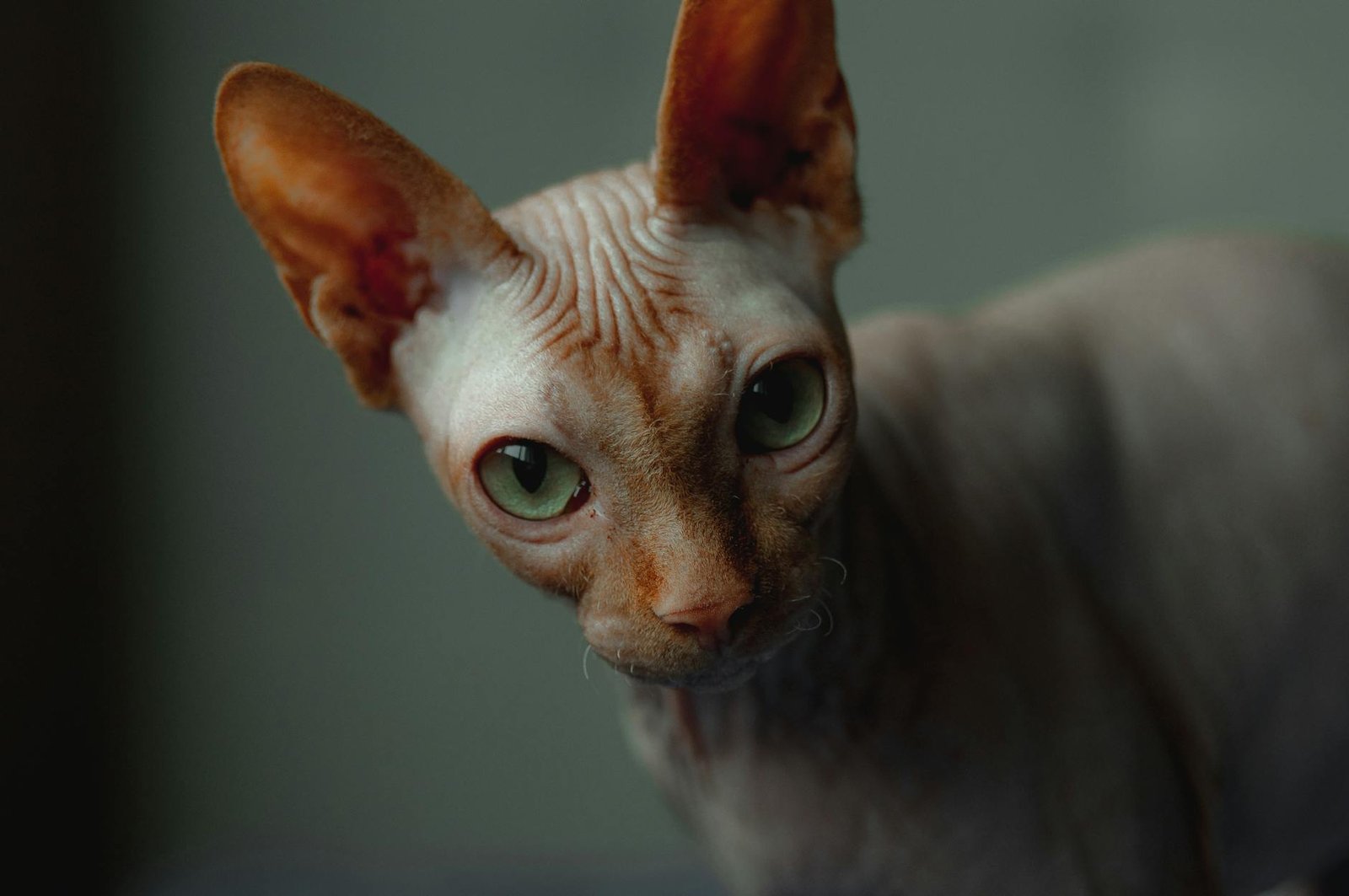Why Genetic Testing Matters
Genetic testing for Sphynx Cats is essential for ensuring their long-term health. Many hereditary conditions, such as Hypertrophic Cardiomyopathy (HCM), can be passed down through breeding, making it critical for breeders and cat owners alike to understand the importance of testing. In this in-depth guide, we’ll explore what genetic tests are necessary for Sphynx cats, why they matter, and how they impact breeding practices.
The Importance of Genetic Testing for Sphynx Cats
Genetic testing for Sphynx Cats allows breeders and owners to identify potential hereditary conditions early on, ensuring that they can manage or prevent certain diseases. For example, Hypertrophic Cardiomyopathy (HCM), a common heart disease in Sphynx cats, can be detected through genetic screening. Without early diagnosis, cats with HCM may suffer from heart failure later in life. Testing helps reduce the risk of passing genetic conditions to future generations.
By performing these tests, breeders can avoid mating two cats that both carry a genetic predisposition to a disease. It also reassures potential owners that they are adopting a kitten with a known health background.
Key Genetic Tests for Sphynx Cats
- Hypertrophic Cardiomyopathy (HCM) Screening
HCM is one of the most prevalent health issues for Sphynx cats. Screening for HCM involves an ultrasound of the cat’s heart, typically performed annually. This condition thickens the walls of the heart, making it harder for the organ to pump blood efficiently. Regular HCM screenings are recommended for all breeding cats to reduce the likelihood of passing this condition to offspring. - Feline Leukemia Virus (FeLV) Testing
FeLV is a contagious virus that affects a cat’s immune system. While it isn’t a genetic disease, testing for FeLV before breeding ensures that no kittens are born with compromised immune systems. Testing is vital to prevent the spread of FeLV among litters. - Feline Immunodeficiency Virus (FIV) Testing
Like FeLV, FIV is not hereditary but can be transmitted from mother to kittens. Testing for FIV ensures that future litters are born healthy and that FIV doesn’t spread through your cattery. FIV can weaken a cat’s immune system, making it vulnerable to other infections. - Progressive Retinal Atrophy (PRA) Testing
PRA is an inherited condition that causes blindness in cats. Sphynx cats, although not as prone to PRA as other breeds, can still carry genes that lead to this condition. Genetic testing identifies whether a cat is a carrier and prevents breeding between two carrier cats, thus reducing the risk of PRA in kittens. - Gingivitis Screening
Sphynx cats are prone to dental issues like gingivitis, which can worsen without proper care. While gingivitis is largely preventable through dental hygiene, some Sphynx cats may inherit a predisposition to severe gum disease. Testing for genetic markers related to gingivitis can help breeders select cats less prone to this issue.
Learn more about Common Health Issues in Sphynx Cats.
The Role of Ethical Breeding in Genetic Testing
Ethical breeders understand the importance of genetic testing and ensure their cats undergo regular screenings. This proactive approach ensures the health and longevity of the breed. Breeding two cats without genetic health checks increases the risk of passing on serious conditions to their kittens.
Before adopting a Sphynx cat, it’s important to ask breeders for documentation of genetic tests performed on the parents. A responsible breeder will be transparent about these tests and should be able to provide you with health certificates for the kittens.
Breeding without testing not only increases the risk of health problems but can also lead to high medical expenses for new owners. Ethical breeders minimize the risk by adhering to rigorous testing protocols and only breeding cats that meet health standards.
Internal Link: To understand more about responsible breeding, visit our Sphynx Cat Breeder Selection Guide.
How Genetic Testing Benefits Cat Owners
As a potential Sphynx cat owner, genetic testing gives you peace of mind. Knowing that your new kitten has been tested for hereditary conditions allows you to anticipate potential health needs and better plan for the future. In some cases, you may be able to prevent health problems with early intervention or targeted care, making genetic testing a vital tool in maintaining your cat’s long-term health.
Genetic testing for Sphynx Cats also helps owners and vets make informed decisions about the cat’s health care. For example, a cat tested and found to be at risk for HCM may require more frequent heart checkups throughout its life. Being aware of this risk means you can work with your vet to monitor and manage the condition early.
The Cost of Genetic Testing for Sphynx Cats
While genetic testing is an additional cost, it is an investment in your cat’s health. The cost of tests like HCM screenings can range from $200 to $500, depending on the veterinary clinic and the thoroughness of the screening. Tests for FeLV, FIV, and PRA may cost less but are still essential.
Breeders should factor these costs into their pricing, as health testing directly impacts the long-term well-being of the cats and kittens. Potential owners should be prepared to pay a premium for a cat that comes from a fully tested lineage.
Internal Link: To explore more about adoption and costs, read our Sphynx Cat Adoption Guide.
What to Look for in a Breeder
When looking for a Sphynx cat breeder, prioritize those who can provide documentation for genetic testing. Here are a few questions to ask:
- What genetic tests do you perform on your breeding cats? A reputable breeder will perform all necessary tests, including HCM and PRA screenings.
- Can I see the health certificates of the parents? Documentation should be readily available, and a responsible breeder will be happy to share it with you.
- How do you ensure that genetic diseases are not passed to future kittens? Ethical breeders will avoid breeding two cats that both carry genes for hereditary diseases.
- Do you offer a health guarantee? Many breeders provide a health guarantee that covers genetic conditions for a specified period after adoption.
Conclusion
Genetic testing is crucial for ensuring the health of Sphynx cats and maintaining ethical breeding practices. By performing tests for conditions like HCM, PRA, and other genetic issues, breeders can improve the overall health of the breed and prevent the spread of hereditary diseases. As a potential owner, asking about genetic testing and understanding the breeder’s practices can help ensure you adopt a healthy and well-cared-for kitten.
For more information on health concerns and responsible breeding, check out our other guides on Sphynx cat care and breeding ethics.


